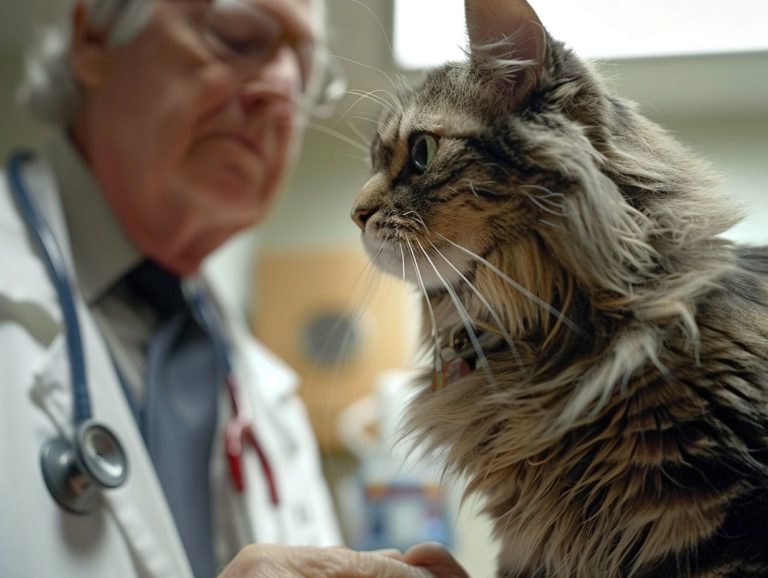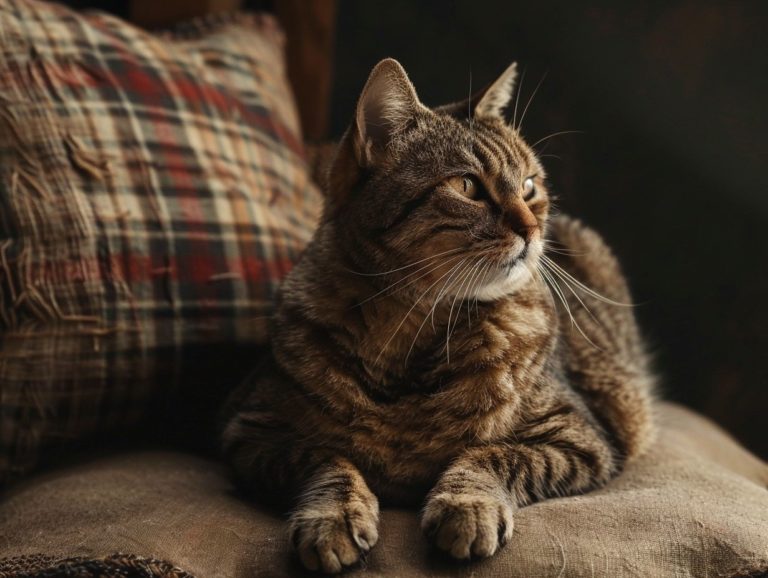When To Consider Increasing Coverage For Your Senior Cat
This section discusses the characteristics of senior cats that may necessitate additional treatment, methods to extend coverage, and factors to ponder when deciding to broaden senior cat coverage.
Guidance on finding the most suitable coverage for a senior cat will also be provided.
Key Takeaways:
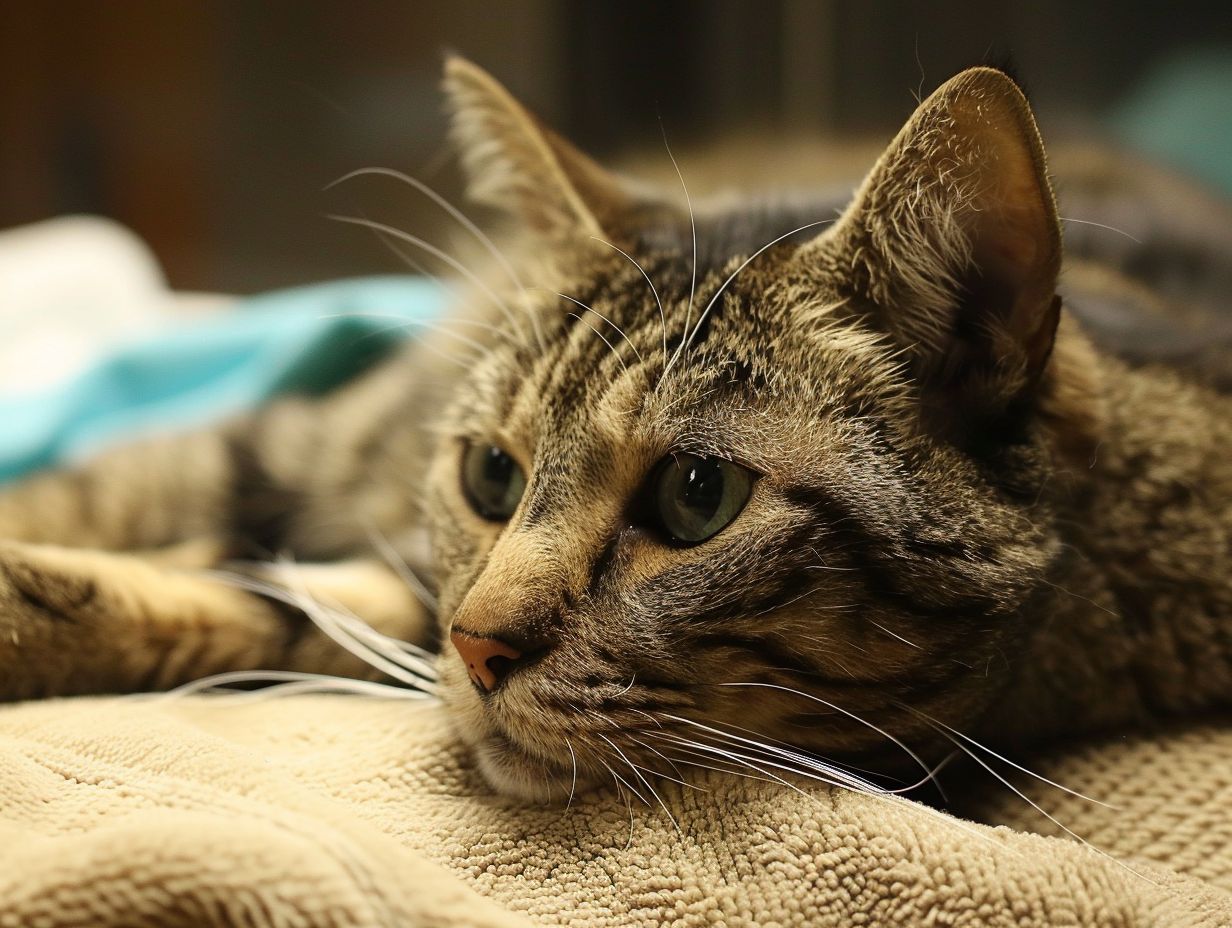
Understanding Senior Cats
Pet owners should understand the unique needs of senior cats, as they require specialized care as they age. Cats have a distinct life stage known as the senior years, during which they exhibit signs of aging similar to humans. With age, cats become more susceptible to specific health issues such as dental problems, arthritis, and kidney disease that are not as prevalent in younger cats. These age-related conditions can impact their quality of life and necessitate tailored treatment approaches. Monitoring signs of aging like decreased mobility and changes in behavior is crucial. Regular veterinary check-ups are essential to ensure the overall health of senior cats. Creating a comfortable environment with easy access to food, water, and litter boxes is vital to accommodate their evolving needs.
Age and Health Considerations
Senior cats face age-related concerns including specific diseases and discomforts such as dental disease, renal failure, and arthritis. As cats age, their immune system weakens, making them more susceptible to various diseases and infections. Weight management is crucial in preventing obesity-related conditions like diabetes. Regular veterinary visits are essential for early detection of age-related issues.
Cognitive decline, deafness, blindness, and reduced mobility are common in older cats. Providing a balanced diet, appropriate exercise, and mental stimulation can significantly enhance the quality of life for a senior cat. Insurance for senior cats can help alleviate the financial burden of emergency health issues for aging felines.
Signs that Your Senior Cat Needs More Coverage
Recognizing the signs that your senior cat needs more care is crucial to ensuring the best possible treatment for your feline companion. Changes in behavior or health can be indicative of underlying health issues that require attention. Subtle indicators that suggest your senior cat may need extra care include increased lethargy, changes in appetite, excessive thirst, or difficulty grooming. These symptoms could point to conditions such as kidney disease, arthritis, dental issues, or hyperthyroidism in older cats.
Common chronic conditions in senior cats include diabetes or heart disease. Regular veterinary check-ups are essential for early diagnosis and timely intervention, which can significantly enhance your cat’s quality of life. By staying vigilant and seeking prompt treatment, you can help your senior cat enjoy a comfortable and healthy aging process.
Changes in Behavior or Health
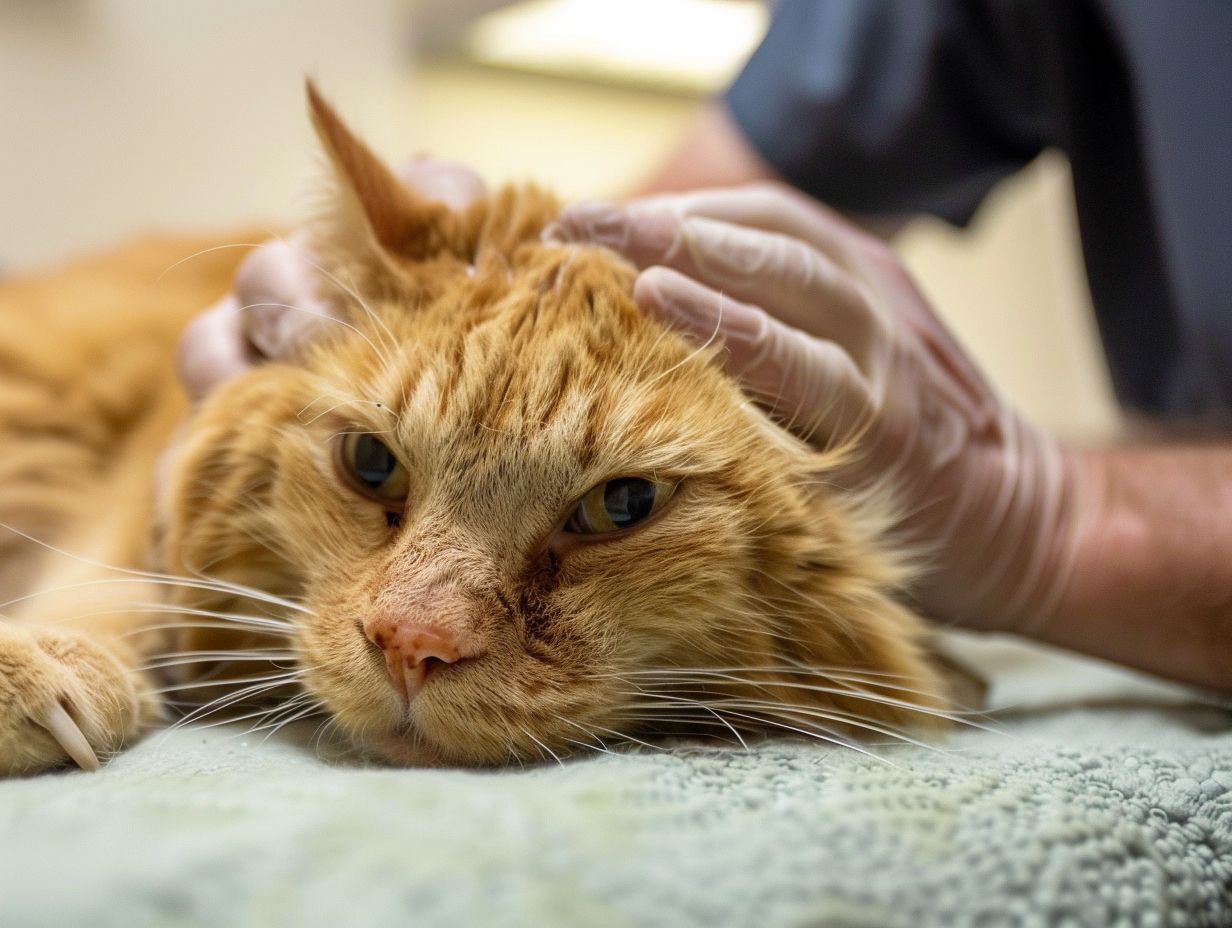
Subtle changes in behavior and health in senior cats can serve as key indicators of underlying medical conditions. It is crucial to closely monitor the overall health of older cats and seek veterinary assistance when needed.
As cats age, they are prone to developing various health issues such as arthritis, dental problems, and kidney disease. Detecting changes in eating habits, grooming routines, or mobility early on can aid in timely intervention.
Regular veterinary check-ups are essential for diagnosing and managing age-related illnesses. Comprehensive pet insurance can help alleviate the financial strain of unforeseen medical costs, ensuring that your senior cat receives optimal care.
Taking a proactive approach to your cat’s health will help them enjoy their senior years comfortably and happily.
Options for Increasing Coverage
When considering options to expand coverage for your older cat, it can help alleviate the financial burden of veterinary care. There are various plan options and providers available for pet owners to choose from based on their cat’s age and specific needs.
Specialized plans designed for senior cats may include coverage for common age-related conditions like arthritis and dental issues. Some providers offer wellness plans that encompass routine check-ups and preventative care, which can be particularly beneficial for older cats requiring more frequent monitoring. Consider increasing coverage for your aging cat to ensure they receive the care they need.
The premiums for these plans can vary based on the coverage level and deductibles selected, underscoring the importance of comparing quotes from multiple providers to ensure the best value for your cat’s individual needs.
Types of Coverage to Consider
Policies for senior cats offer coverage for age-related health conditions and comprehensive care, making a significant difference in the health of older felines. Older pets, like senior cats, often require specialized medical attention due to conditions that become more prevalent with age.
Tailored policies for senior cats can encompass expenses related to common age-related conditions such as arthritis, dental diseases, and kidney failure. Comprehensive coverage should encompass standard veterinary care to ensure preventive measures are taken, along with coverage for chronic conditions like diabetes, hyperthyroidism, or heart disease to provide ongoing support for older cats.
When selecting an insurance provider for your senior cat, it is important to consider factors such as reputation, coverage limits, deductibles, and customer reviews.
Factors to Consider Before Increasing Coverage
Before increasing coverage for your senior cat, it is important to consider factors such as evaluating the added costs, the reputation of the provider, and the extent of coverage needed for age-related problems in felines. Age-related diseases in cats may necessitate more frequent visits to the vet and specialized care.
When comparing different insurance options, it is crucial to determine if the policy covers common senior cat issues like arthritis, kidney disease, or dental problems. Additionally, it is advisable to review any age-related exclusions or limitations that the insurance policy may have.
Financial considerations should also be taken into account by comparing various plans to identify the one that offers the best value for your older cat’s specific needs.
Budget and Health Needs of Your Cat

When selecting an insurance plan for your senior cat, balancing the budget and health needs is the most important factor. The key considerations for the well-being of senior cats include meeting the medical care requirements and choosing insurance coverage that ensures the best possible care. Premiums may vary depending on the cat’s age and medical history, underscoring the importance of selecting a plan that aligns with the budget while providing comprehensive coverage. Opting for an insurance plan that offers tailored services designed for the age and health status of the cat can provide reassurance that optimal care will be delivered as your pet grows older.
Tips for Finding the Right Coverage
When selecting the most suitable coverage for your senior cat, consider factors such as pre-existing conditions, plan flexibility, and coverage for common health issues to simplify the decision-making process. These guidelines will assist owners in making informed choices.
The most crucial aspect in choosing insurance for an older cat is ensuring the provider’s reputation. Seek out established insurance companies known for offering dependable coverage and excellent customer service. Verify that the insurance plan you select includes coverage for prevalent chronic conditions in older cats to ensure your pet receives proper care without imposing excessive financial strain.
Proactively managing veterinary expenses through a tailor-made insurance plan can guarantee that you provide optimal care for your aging feline companion.
Researching and Comparing Plans
Pet owners can make well-informed choices by researching and comparing plans for older cats to secure the best possible coverage. By comparing different pet insurance plans, providers, and their approach to age-related health issues, pet owners can tailor their insurance coverage to meet the unique needs of their aging feline companions.
Ensuring that policies cover common age-related conditions such as arthritis and kidney disease can guarantee that cats receive necessary veterinary care without financial strain. Additionally, gaining insights into the efficiency of the claim process and overall customer satisfaction through learning about the reputation and customer reviews of insurance providers is crucial.
Customizing coverage based on the cat’s age and health condition can provide pet owners with peace of mind knowing their beloved pets are well protected.
The Importance of Adequate Coverage for Senior Cats
Recognizing the importance of adequate coverage for senior cats allows pet owners to ensure they provide the best possible care for their pets. Adequate insurance coverage can help alleviate the financial burden of age-related health issues and ensure that older cats receive prompt veterinary care.
Enrolling senior cats in a comprehensive insurance plan early on can be preventative, as it often covers common health issues such as arthritis, dental problems, and kidney disease frequently seen in older cats. By ensuring your cat is covered, you can secure access to necessary medical treatments and gain peace of mind, knowing you are prepared to manage any unexpected health challenges that may arise during your pet’s later years.
Frequently Asked Questions
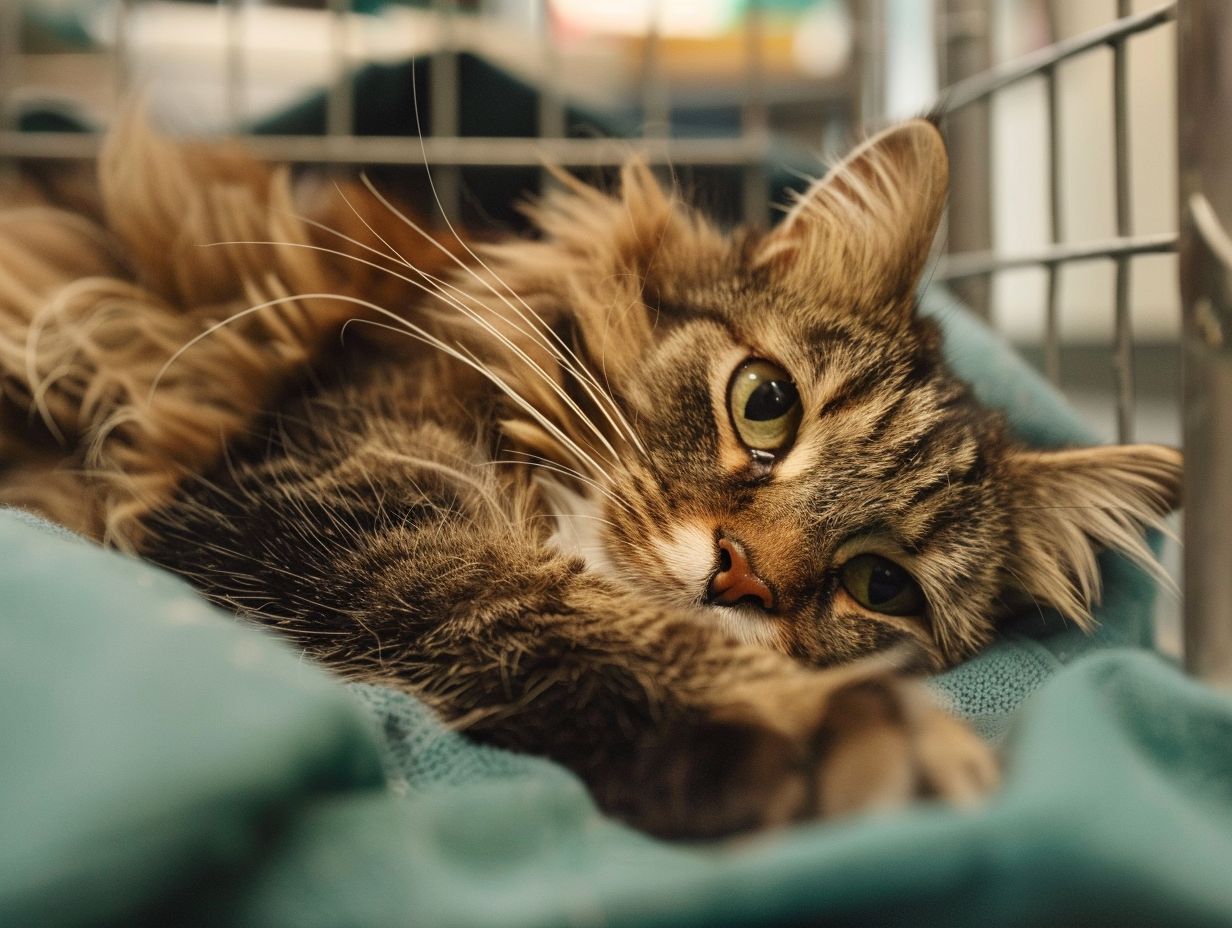
When should I consider increasing coverage for my senior cat?
It is recommended to consider increasing coverage for your senior cat once they reach the age of 8-10 years old.
What are the signs that my senior cat may need increased coverage?
If your senior cat has been diagnosed with a chronic illness or has started developing age-related health issues, it may be time to consider increasing their coverage.
Do all insurance plans offer coverage for senior cats?
No, not all insurance plans offer coverage for senior cats. It is important to research and compare plans to find one that offers coverage specifically for senior cats.
Is it possible to add coverage for my senior cat after I have already purchased an insurance plan?
Yes, it is possible to add coverage for your senior cat even after you have purchased an insurance plan. Contact your insurance provider to inquire about adding coverage for your senior cat.
What are the benefits of increasing coverage for my senior cat?
Increasing coverage for your senior cat can provide peace of mind and help cover unexpected medical expenses. It can also ensure that your senior cat receives the best possible care as they age.
Is there a limit to how much coverage I can get for my senior cat?
Yes, there are usually limits to how much coverage you can get for your senior cat. It is important to review the limits and coverage options with your insurance provider to determine the best plan for your senior cat’s needs.

